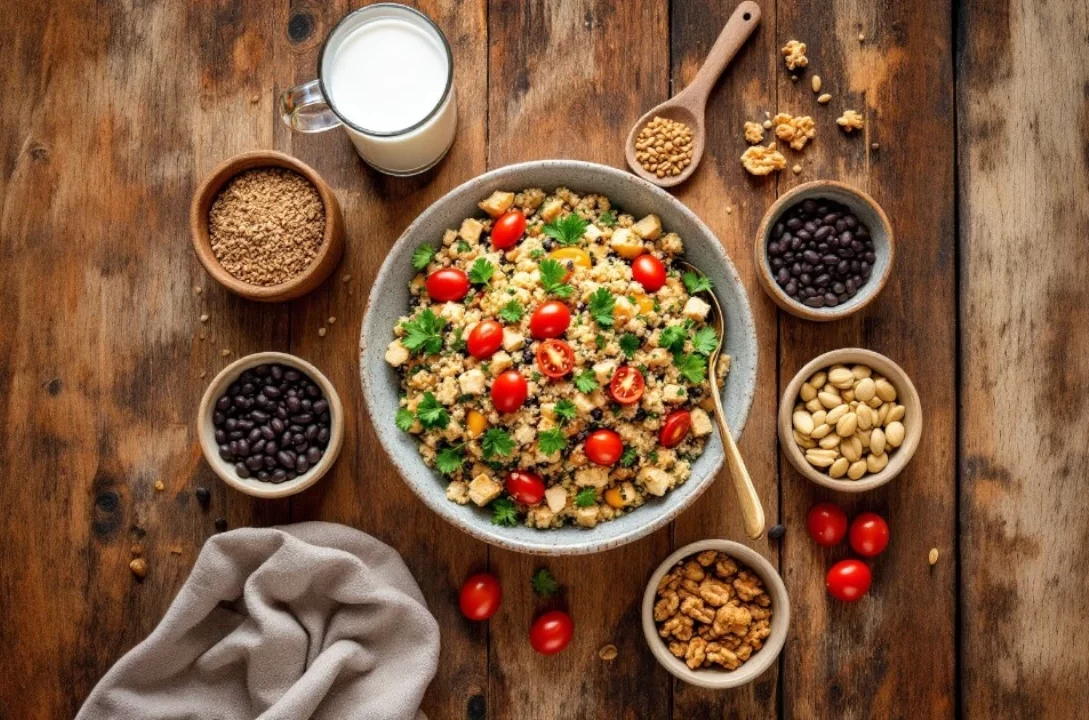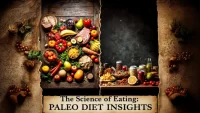Getting enough protein on a vegetarian or vegan diet is easier than you think! While meat and dairy are common protein sources, countless plant-based foods pack just as much—if not more—nutritional punch. Whether you’re building muscle, staying active, or simply maintaining a balanced diet, these protein-rich foods will keep you energized and satisfied.
Let’s explore the top plant-based protein sources that deliver all the essential amino acids your body needs.
Why Protein Matters in a Vegetarian or Vegan Diet
Protein is crucial for muscle repair, immune function, and overall health. Many people worry that plant-based diets lack sufficient protein, but with the right foods, you can easily meet your daily needs.
Key Benefits of Plant-Based Protein:
- Supports muscle growth and recovery
- Boosts metabolism and satiety
- Lowers cholesterol and reduces inflammation
- Rich in fiber, vitamins, and antioxidants
By incorporating diverse protein sources, you’ll avoid deficiencies and thrive on a meat-free diet.
Complete vs. Incomplete Plant Proteins
Not all plant proteins are created equal. Some contain all nine essential amino acids (complete proteins), while others need combining for optimal nutrition.
Complete Plant Proteins (Rare but Powerful)
- Quinoa
- Buckwheat
- Soy products (tofu, tempeh, edamame)
- Hemp seeds
- Chia seeds
Incomplete Proteins (Pair for Full Benefits)
- Beans + Rice
- Hummus + Whole Wheat Pita
- Peanut Butter + Whole Grain Bread
Mixing different plant proteins ensures you get a full amino acid profile.
Top Protein Sources for Vegetarians and Vegans
Lentils: The Protein Powerhouse
Lentils deliver 18g of protein per cooked cup along with iron and fiber. They’re versatile—use them in soups, curries, or salads.
Best Ways to Eat:
- Lentil dal
- Veggie burgers
- Lentil stew
Chickpeas: The Ultimate Muscle Fuel
Chickpeas offer 15g of protein per cooked cup and work well in both savory and sweet dishes.
Try These:
- Hummus
- Roasted chickpea snacks
- Chickpea flour pancakes
Tofu and Tempeh: Soy-Based Superstars
Tofu (10g protein per ½ cup) and tempeh (15g per ½ cup) are complete proteins with a meat-like texture.
Delicious Ideas:
- Tofu scramble
- Tempeh bacon
- Grilled tofu skewers
Quinoa: The Ancient Grain with a Punch
Quinoa provides 8g of protein per cooked cup and is one of the few complete plant proteins.
How to Enjoy:
- Quinoa bowls
- Stuffed peppers
- Quinoa porridge
Edamame: The Protein-Packed Snack
Young soybeans contain 17g of protein per cooked cup and make a great appetizer or salad topping.
Best Uses:
- Steamed edamame with sea salt
- Edamame hummus
- Stir-fries
Seitan: The “Wheat Meat”
Made from gluten, seitan packs 25g of protein per 3.5 oz—perfect for meat substitutes.
Tasty Recipes:
- Seitan steak
- Vegan fried “chicken”
- BBQ seitan sandwiches
Hemp Seeds: Tiny but Mighty
Hemp seeds offer 10g of protein per 3 tablespoons and are rich in omega-3s.
Easy Add-Ins:
- Smoothies
- Oatmeal
- Salads
Chia Seeds: Protein and Omega-3 Combo
Chia seeds provide 5g of protein per 2 tablespoons and expand into a gel-like texture for puddings.
Creative Uses:
- Chia pudding
- Energy balls
- Vegan egg substitute
Spirulina: The Algae Protein Boost
This superfood contains 4g of protein per tablespoon and works well in smoothies.
How to Take:
- Green smoothies
- Protein bars
- Energy shots
Nuts and Nut Butters: Protein and Healthy Fats
Almonds, peanuts, and cashews provide 6-8g of protein per ounce.
Smart Snacking:
- Almond butter toast
- Trail mix
- Peanut sauce
How to Maximize Protein Absorption
To get the most out of plant-based proteins:
- Combine complementary proteins (e.g., beans + rice).
- Soak or sprout legumes to reduce anti-nutrients.
- Pair with vitamin C (like bell peppers) to boost iron absorption.
Common Myths About Plant-Based Protein
- Myth: Plant proteins are incomplete.
Truth: You can get all amino acids by eating a varied diet. - Myth: Vegans can’t build muscle.
Truth: Many athletes thrive on plant-based protein.
FAQs About Vegetarian and Vegan Protein
Can you get enough protein without meat?
Absolutely! Lentils, tofu, quinoa, and nuts provide ample protein.
What’s the best protein source for muscle gain?
Seitan, tempeh, and pea protein powder are excellent for building muscle.
Do plant proteins digest slower than animal proteins?
Yes, but this helps with sustained energy and fullness.
Is soy protein safe for men?
Yes, moderate soy consumption doesn’t affect testosterone levels.
How much protein do vegetarians need daily?
Aim for 0.8g per kg of body weight (more if active).
Final Thoughts: Build Strength the Plant-Based Way
You don’t need meat to meet your protein needs. With lentils, tofu, quinoa, and other plant-based superstars, you can enjoy delicious, protein-rich meals that support your health and fitness goals.
Ready to power up your diet? Start incorporating these protein-packed foods today!
Loved this guide? Share it with fellow plant-based eaters!
(Internal links: Best vegan meal plans, high-protein smoothie recipes. External links: Healthline, PubMed, NutritionFacts.org.)










